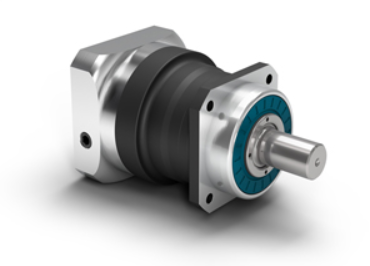A Brief Discussion on the Difference Between Planetary Gearboxes and Conventional Gearboxes
Planetary Gearboxes are commonly used in applications requiring low speed and high torque. Their main function is to reduce speed while simultaneously increasing output torque. The output torque is proportional to the reduction ratio, but it is crucial not to exceed the gearbox’s rated output torque. Planetary gearboxes also help reduce the load inertia, making them ideal for high-torque, low-speed applications.
Types of Conventional Gearboxes
- Worm Gearbox
- Features: A worm gearbox typically offers self-locking capabilities, allowing for a larger reduction ratio. The input and output shafts are not aligned on the same axis. These gearboxes are usually bulkier, with lower transmission efficiency and precision.
- Pros: Large reduction ratios and self-locking.
- Cons: Lower efficiency and precision, larger size.
- Harmonic Drive Gearbox
- Features: The harmonic drive uses flexible components that undergo controlled elastic deformation to transmit motion and power. These gearboxes are compact and highly precise, making them ideal for applications requiring high accuracy.
- Pros: Compact, high precision.
- Cons: Limited lifespan of the flex wheel, sensitive to shock, lower rigidity compared to metal parts, and not suitable for high input speeds.
- Servo Gearbox
- Features: Servo gearboxes are known for their compact structure, low backlash, high precision, long service life, and high-rated output torque. However, they tend to be more expensive.
- Pros: Compact, low backlash, high precision, long life.
- Cons: Higher cost.
Summary
- Planetary gearboxes excel in high-torque, low-speed applications, offering high efficiency, torque multiplication, and reduced load inertia.
- Worm gearboxes are known for their self-locking abilities and large reduction ratios, but they are bulky, less efficient, and less precise.
- Harmonic drive gearboxes offer excellent precision in compact forms but have limitations in durability and speed.
- Servo gearboxes provide high precision and long lifespan, but they come at a higher price.
Each gearbox type has its own advantages and is suited to specific applications, depending on factors like size, precision, torque, and cost.

